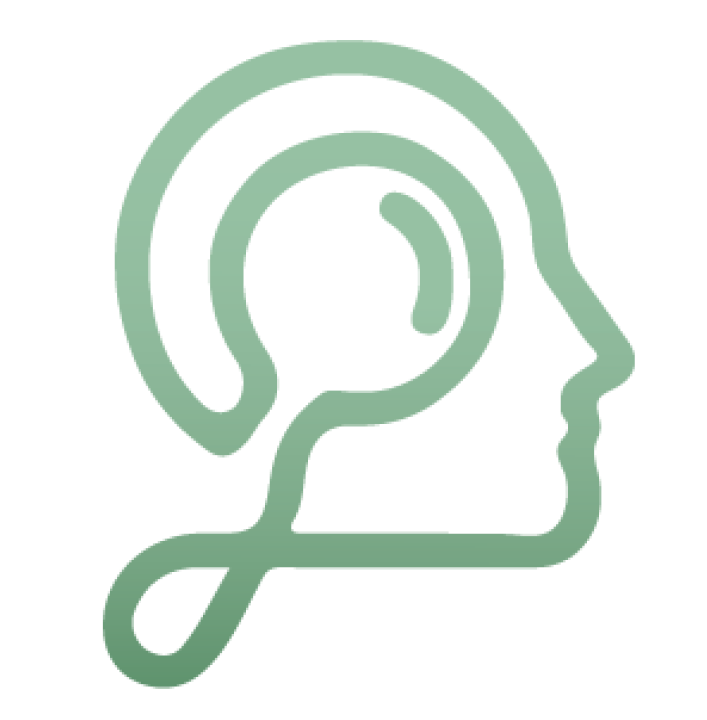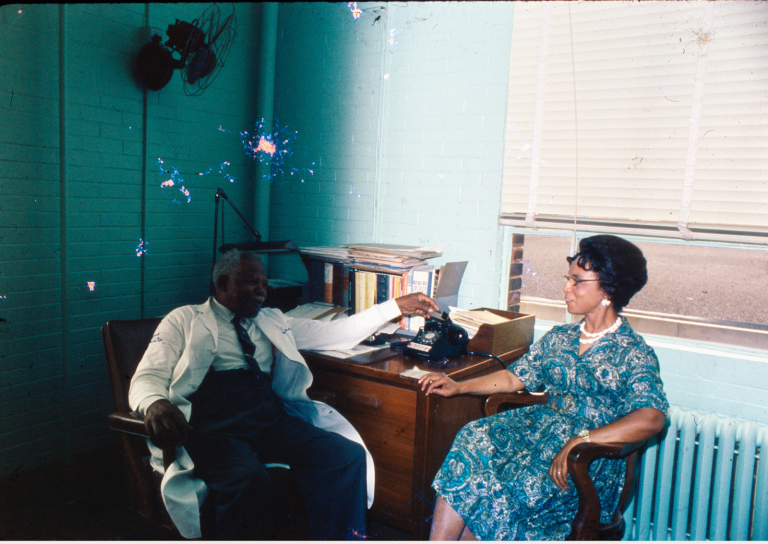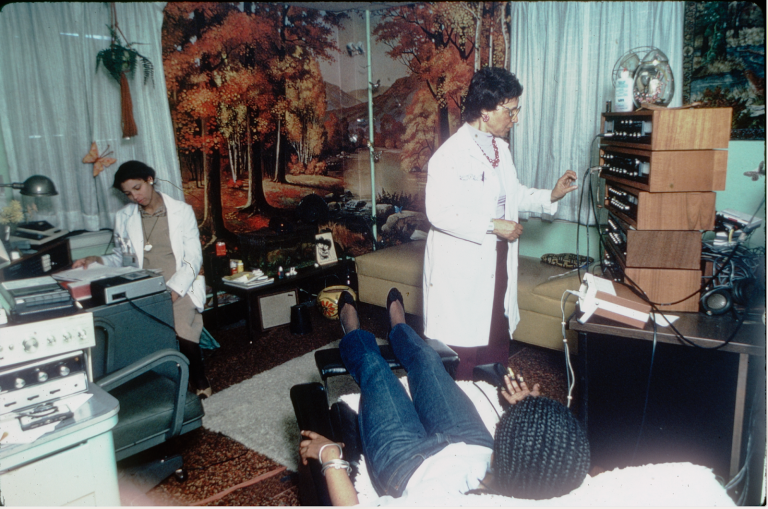Dorothy Doyle Harrison
We bring to light the avant-garde work of Professor Dorothy Doyle Harrison (1918-2021), an Barbadian-American healthcare practitioner. During World War II, Harrison launched her ground-breaking international career in nursing and public health, and pioneered medical research informed by her progressive ideals in the US and abroad.
A Healthcare Pioneer
during World War II
Dr. Harrison’s early career was shaped by two African-American women activists who led the effort to desegregate nursing in the military before World War II: Her sister Mabel Staupers and Mary McCloud Bethune, a civil right activist. At age 25, Harrison served two years (1945-47) as a nurse with the United Nations Relief and Rehabilitation Administration (UNRRA). She later worked in public health, midwifery, and nursing in the Caribbean and Brazil.
Pictured: With fellow nurses in Brazil, 1949
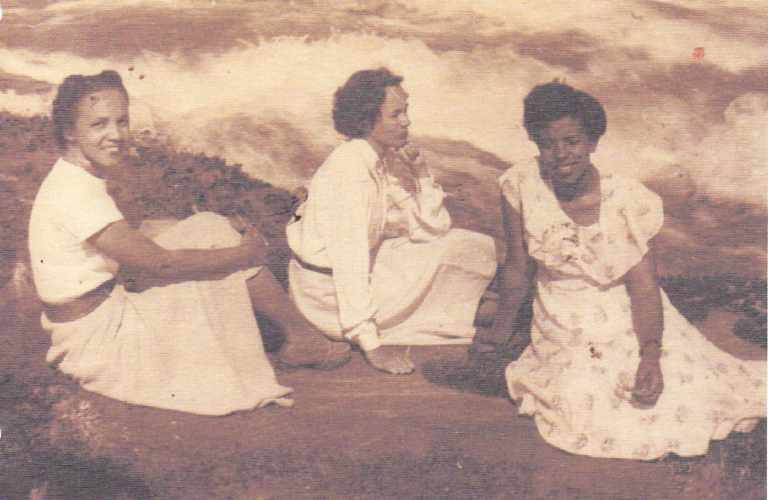
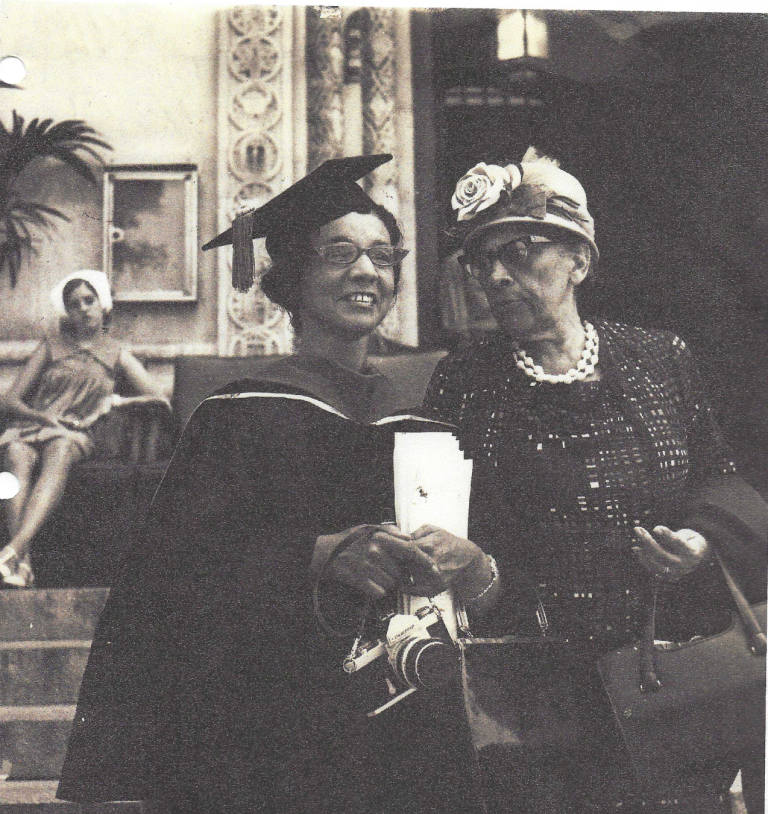
A Talented Scholar
Professor Harrison was a voracious scholar, using engineering, computer science, medical anthropology and mind-body connections to inform her public health research. Professor Harrison’s accomplishments are witnessed in her writing, photography, and film projects, scholarly work, teaching career, community ties, political activism and her spirituality.
Pictured: Dorothy Doyle Harrison at her PhD ceremony with Mabel Doyle Staupers, Catholic University, Washington, DC, 1967
Documenting a Life in Nursing, Medicine and Community
Dorothy Harrison was a self-taught photographer documenting her transformative work in medicine and health justice in the US and internationally (1945 – 2015). She taught at Howard University College of Medicine and Nursing, Washington, DC, for 38 years. Her archive and estate encompasses over 10,000 photos, books and papers, video, audio, and digital records, including photos she developed and printed in her darkrooms.
Pictured: Professor Harrison in her office and with a colleague, Howard University, c.1956
Medical Anthropologist, Yale Fellow, and Health Care Innovator
Tirelessly educating herself and expanding her approaches, Harrison was awarded a PhD in Medical Anthropology (Catholic University, 1967), certified as a Nurse Practitioner (SUNY, Stony Brook, 1972), and was a Fellow at Yale University School of Medicine in the Department of Anatomy, studying bioelectric dynamics under Dr. Saxton Burr, 1972-1974, and received a certificate in bioelectric engineering at Princeton University. She authored the HeadStart curriculum in 1965. As Associate Professor at Howard she received over $800 thousand dollars in research grants from NIH and other agencies.
Pictured: Dr Harrison in the biofeedback clinic she created at Howard University, late 1970s
Archiving a Lifetime of Photography
The Dorothy Harrison archive includes family photographs and records from the 19th century, and her street and documentary photography from the 1930s – 2019.
Currently our research team is organizing and cataloging Harrison’s archive and materials, developing film and book projects on Harrison’s biography, photography and writings. A traveling exhibition of Harrison’s public health and health justice work at Howard University’s Gallery of Art, to open in spring 2025.
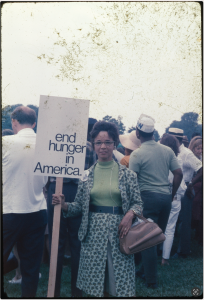
MHHJ Presents Poetic Health Justice
Cancer is the second leading cause of death in Washington, DC, but the burden is not shared equally. Stark racial and geographic disparities persist—Black residents face the highest mortality rates, and those in Wards 1, 7, and 8 experience the greatest incidence and loss. Beyond the numbers, cancer leaves behind stories—of diagnosis, of caregiving, of grief, of survival—stories that are often missing from public health data but deeply felt in communities. This exhibit is a space to witness those stories.
